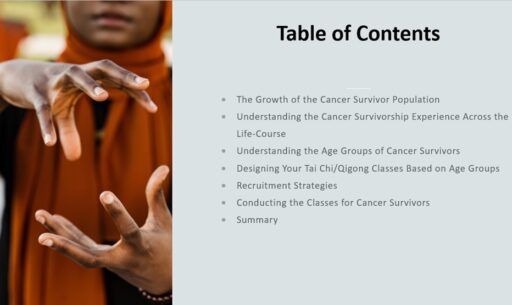Having been diagnosed with and treated for cancer can have negative psychosocial repercussions that may differ across the lifespan. Mind-body therapies (MBTs), such as tai-chi/qigong or mindfulness-based cancer recovery, have shown promise in decreasing negative psychosocial outcomes in cancer survivors, but few studies have explored potential differences in MBT use and effectiveness across age groups.
Two Canadian universities, University of Calgary and Memorial University of Newfoundland, used a descriptive phenomenological qualitative design to fill the gap.
Participants included young (18-39), middle (40-64), and older (65+) adult cancer survivors who were diagnosed with any type of cancer and had participated in Mindfulness-Based Cancer Recovery or Tai Chi/Qigong MBTs. Semi-structured qualitative interviews explored participants’ experiences in MBTs and these were analyzed using descriptive phenomenological analysis.

Among the 18 people being interviewed, 6 were young, 8 were middle-aged, and 4 were older adults. Five themes emerged: influences in joining the program, unique lifestyles, positive class experiences, use of media, and program impacts. Though all age groups benefitted from MBT participation, variations between age groups with respect to the benefits received and motivations for joining the program were observed.

A tutorial with details is available for ATCQA Members and Certified Instructors/Practitioners.
Conclusion: MBTs such as Tai Chi/Qigong had beneficial physical and mental health effects on survivors of all age groups. These benefits were particularly connected to the ongoing life stresses common to each age cohort, such as relief from work and family roles for young adults or support during retirement transition for older adults. Hence, access to MBT programs may be beneficial as part of the survivorship plan for patients and the recruitment strategies or content can be adapted by MBT providers to better target and support age-specific groups. More research is required with a larger sample.